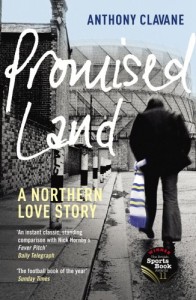 The Football Scholars Forum’s last session of 2017 took place on December 7.
The Football Scholars Forum’s last session of 2017 took place on December 7.
Author and journalist Anthony Clavane discussed his splendid book, Promised Land: A Northern Love Story, which won the 2011 UK Sports Book of the Year award.
Part memoir, part social history, part fútbology, Promised Land is as much about Leeds (the city) as it is about Leeds United (the club). In the publisher’s words: “This is a book about football. It’s about unconditional love for a club, even when it doesn’t always seem to love you back. But it is also a book about much more than that.”
The FSF discussion revolved around the themes of belonging, community, and identity. Football cannot be adequately understood, Clavane’s work shows, without thinking deeply about the social, economic, political, and cultural underpinnings of sport. Leeds and United lent themselves quite well to this kind of analysis, as they embodied broader transformations in English football and society.
Listen to an audio recording of the session here and read live tweets here.
The Football Scholars Forum’s next online gathering takes place on February 23, 2018 (2pm ET). It will explore documentary film as a medium for stories about soccer. For additional information and to participate, click here.
Tag: England
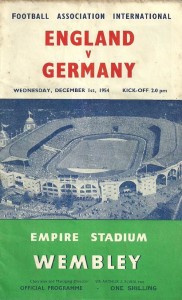 The Football Scholars Forum opened its 2015-16 season on Wednesday, October 14, with a discussion of Christoph Wagner’s DeMontfort University PhD thesis entitled “Crossing The Line: The English Press and Anglo-German Football, 1954-1996.”
The Football Scholars Forum opened its 2015-16 season on Wednesday, October 14, with a discussion of Christoph Wagner’s DeMontfort University PhD thesis entitled “Crossing The Line: The English Press and Anglo-German Football, 1954-1996.”
Based on extensive archival research, “Crossing the Line” analyzes representations of Germany and Germans in English newspapers’ football coverage of key international matches between the two western European nations. Within a shifting post-war historical context, the study notes a persistent undercurrent of hostility in Anglo-German cultural relations, football included.
However, two distinct phases were described. In the first, extending from the 1950s to the rise of Thatcher, dailies generally adopted a restrained tone and their coverage was notable for the “relative absence of anti-German sentiment.” A major transformation occurred in the second phase, from the 1980s to the mid-1990s, as English press coverage turned more negative, chauvinistic, and increasingly xenophobic.
The FSF discussion with the author touched on many different aspects of Wagner’s study, from the militarization of language in the football press and the forging of national stereotypes to narratives of English decline, methodology and sources.
A recording of the session is available here.
For more information about the Football Scholars Forum visit the online think tank’s website.
“Last Week Tonight” host John Oliver explains soccer and society in England to David Letterman.
The rich win. The poor lose. And most Americans don’t care.
Except, of course, those of us who screeched about John getting the number of EPL teams wrong. Enjoy!
Scottish Independence, Britain, and FIFA
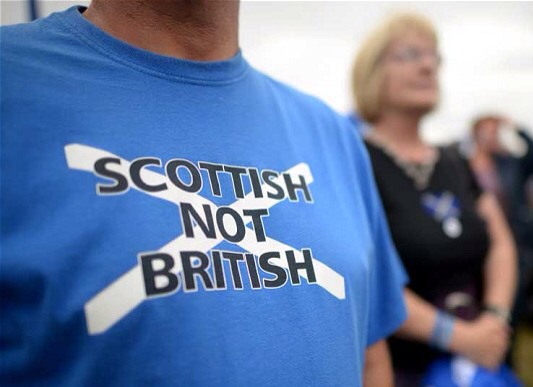
With the Scottish independence referendum a week away, Stefan Szymanski of the University of Michigan is thinking about what the outcome might mean for football.
Writing on the Soccernomics blog, he reminds us that the UK is the only nation-state with four members in FIFA and points to a historically tense relationship between the world body and the founders of the modern game.
According to Szymanski, “a vote for independence would change things.” FIFA might gain control of IFAB (responsible for the rules of the game); Welsh nationalism could receive a boost; and perhaps other football nations would call more loudly for the UK to field a single team, as it does in the Olympics.
Meanwhile in Scotland, the New York Times reports that “the country’s stadiums have become key battlegrounds for the yes and no campaigns.”
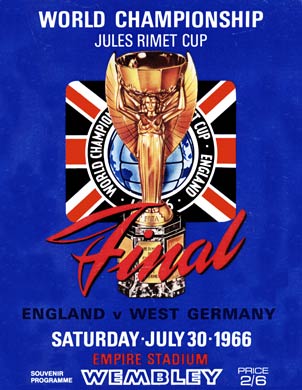 Author, scholar, and journalist David Goldblatt is probably best known for his sacred text of football studies: The Ball is Round: A Global History of Soccer. On Thursday, March 15 (The Ides of March!), Goldblatt shared work from his new project — a sort of mini-Ball is Round book on the cultural politics of football in Britain after 1989.
Author, scholar, and journalist David Goldblatt is probably best known for his sacred text of football studies: The Ball is Round: A Global History of Soccer. On Thursday, March 15 (The Ides of March!), Goldblatt shared work from his new project — a sort of mini-Ball is Round book on the cultural politics of football in Britain after 1989.
In an engaging public talk at the Department of History at Michigan State University, Goldblatt used the upcoming European Championships in Poland/Ukraine and the London Olympics, to explore the changing relationship between football, Britishness, and Englishness in the age of devolution.
The spontaneous popular theater of the Euros, he argues, carves out an arena for England’s traveling fans to declare their “Englishness.” Fans’ rejection of the Union Jack in favor of the flag of St. George and their performance of particular national songs are cases in point. In the case of the 2012 Olympics, Goldblatt notes that there will be no “England” in the tournament because the International Olympic Committee, unlike FIFA, deals only with sovereign states. (Britain has four members in FIFA: England, Scotland, Wales, and Northern Ireland.) The formation of the British Olympic football team thus becomes very contentious in a postdevolution context, with only England firmly supporting it. A striking contemporary example of football’s singular significance for popular national identity.
Listen to Goldblatt’s talk here.
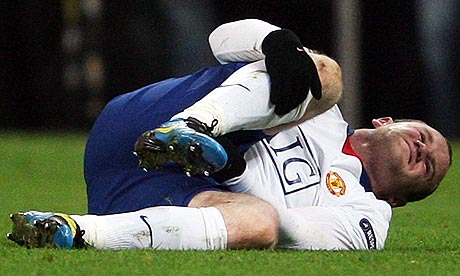
When people ask me ‘Who will win the 2010 World Cup’ I tell them either Spain or England. Loaded with talent in the middle and up front, Spain have been magnificent in the past 3 years, as the Euro 2008 crown and the subsequent winning streak demonstrated. Meanwhile, Capello has resurrected an English side that didn’t even qualify for Euro 2008, mixing tactical acumen with more traditional Anglo attributes and an experienced player corps.
But my World Cup final prediction hangs on Wayne Rooney’s health. His severe ankle sprain suffered in the dying seconds of ManU’s last-gasp defeat to Bayern Munich not only complicates my future career as a pundit (ha!), but threatens the Red Devils’ title chase and England’s quest for World Cup glory.
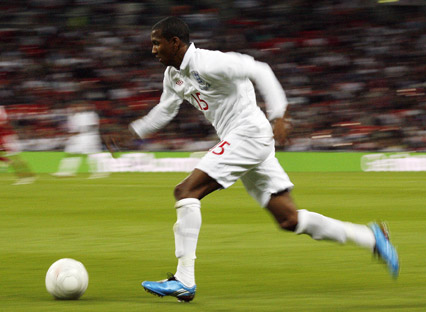
(Davy expects African sides to edge traditional Latin and Continental powers, but fancies England for the Cup. Below he discusses the likely England squad, highlighting what he expects to be the historic contribution of England’s black players.)
To be King in Africa, a useful prerequisite is to be a Black Prince. Africans have high expectations in 2010. Prince Michael of Ghana is regal. Didier of Orange, deadly. Other African Princes will soon have noble claims.
European and Latin Princes will not relinquish supremacy easily. Castilian legions led by the Boy Prince Fernando occupy the high ground. The colours of the canary have been sighted. Animals grow restless at the approaching beat of the Samba. Caravans of dancing distractions cannot be far behind.
England’s Princes are now schooled in the Florentine art of obtaining and maintaining possession. Possession is power. The tongue and territory will be familiar. Their opponents fattened at the premier table.